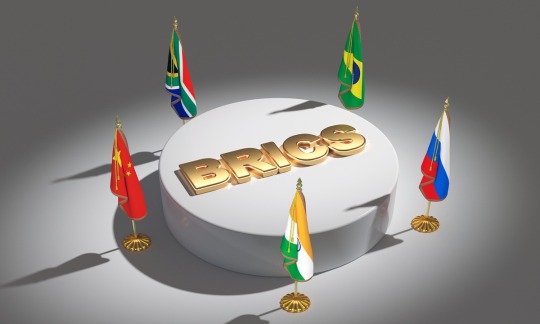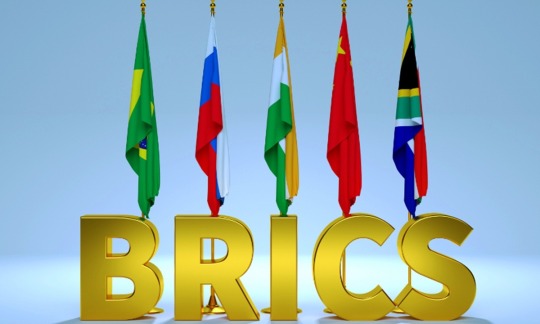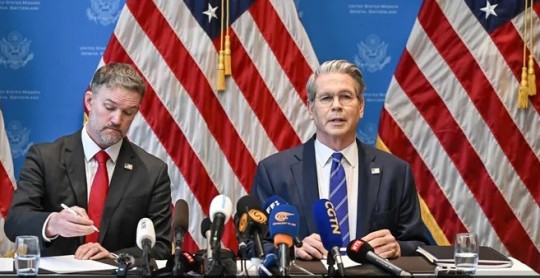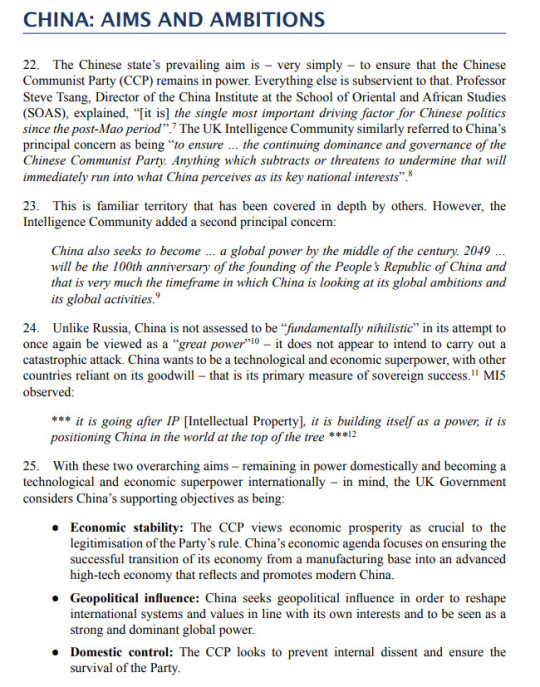#decoupling
Explore tagged Tumblr posts
Text
This is an older article (from 2021), but I'm posting it here because I realize a lot of people don't know this is happening. There seems to be a narrative in certain corners of the internet that we haven't made any measurable progress on climate change at all when the opposite is true--while we need to do more as quickly as we can, we have already significantly moved the needle on the amount of warming in our collective future.
It wasn't all that long ago that it was debated whether it was even possible to meaningfully decouple emissions from economic growth--now it is beginning to happen for several countries and more are headed in that direction.


To compensate for instances where wealthy nations might be "exporting" their emissions to other countries, this data attributes emissions from imported goods to the importing country (and subtracts them from the exporting country).
Here are some graphs from a more recent analysis done in 2024 by the International Energy Agency, where you can see that this is also beginning to happen even in countries seeing rapid development like China and India.


While decoupling at this rate is not sufficient to get where we need to be to properly address climate change (and there is an argument to be made that slowed growth or degrowth may be necessary to fully curb unsustainable emissions and resource consumption especially in wealthier countries) the fact that it's happening at all shows remarkable progress beyond what many expected to be possible not so long ago.
#decoupling#emissions#carbon emissions#hope#good news#hopepunk#solarpunk#climate change#global warming#fossil fuels#economics#economy#environment#data#environmental issues#ecogrief#climate grief#climate anxiety#climate crisis
343 notes
·
View notes
Text
A comprehensive new review by experts in the sustainability science field, published in The Lancet Planetary Health, is challenging the long-held assumption that economic growth is necessary for societal progress.
The review, led by the Institute of Environmental Science and Technology of the Universitat Autònoma de Barcelona (ICTA-UAB) and titled "Post-growth: the science of wellbeing within planetary boundaries," explores the rapidly advancing field of post-growth research and presents a compelling case for prioritizing human well-being and ecological sustainability over endless economic expansion.
[...]
Key findings from the review include: The Limits to Growth: The review revisits the findings of the 1972 report "Limits to Growth," noting that the world is currently tracking the "Double Resources" scenario, where collapse is driven by pollution rather than resource scarcity. This aligns with current concerns about climate change and biodiversity loss. Decoupling is Insufficient: While relative decoupling of GDP from resource use is common, the review finds no evidence of sustained absolute and sufficient decoupling, and models suggest that it is unlikely even with optimistic assumptions about technology. Social Limits to Growth: The review finds that above a certain level of income, economic growth does not improve human well-being, and the costs of growth (e.g., pollution and social upheaval) may offset its benefits. There are diminishing returns for social outcomes such as health, education, and poverty reduction as GDP increases. Post-Growth Policies: The review highlights the development of ecological macroeconomic models that test policies for managing without growth. It discusses a range of policies to reduce growth dependencies and promote well-being, including universal basic services, working-time reductions, job guarantees, and carbon and wealth taxes. Well-being within Limits: The review emphasizes that high levels of well-being can be achieved at lower levels of resource use. It argues that focusing on public services, income equality, and democratic quality can meet human needs with much lower energy use. North-South Dynamics: The review acknowledges the unequal exchange between the Global North and the Global South, where richer countries appropriate resources and labor from poorer nations. It suggests that post-growth in high-income countries might benefit low-income countries by reducing this exploitation. However, the review notes that post-growth could also negatively affect low-income countries that are dependent on exports to high-income countries, unless low-income countries implement policy interventions towards monetary sovereignty, industrial policy and effective delinking from high-income economies.
17 January 2025
190 notes
·
View notes
Text
[TW: Trichotillomania/BFRB discussion]
I randomly ended up reading about decoupling, decided to give it a try, and I haven't pulled or eaten my hair in two days. My mind is kind of reeling right now.
Decoupling is a technique for treating BFRBs where you redirect the motion that's usually associated with the behavior you're trying to stop. For example, if you bite your nails, when you're in the process of bring your finger up to your mouth, you would instead touch your earlobe or another part of your face.
For me, when I'm reaching to pull a hair, I instead press the palm of my hand to the back of my head. It's especially useful because it gives me the satisfying sensation of touching hair, which no kind of fidgeting can replace, but in a harmless way. It shuts down the impulse in a way that just stopping doesn't; I think it's because it feels like the gesture is "completed" in a way, not left unfinished.
The impulse is still there, I think especially because it doesn't address the hair-eating element of the behavior, but thusfar I've been able to shut it down effectively. We'll see how this goes.
#bfrb#body focused repetitive behavior#trichotillomania#trichophagia#decoupling#nothing else has worked for me so far#so might as well give this a shot
22 notes
·
View notes
Text
Chinese Senior Diplomat Calls To Resist Cold War Mentality At BRICS Security Meetings
— Global Times Staff Reporters | July 25, 2023

Photo: BRICS. VCG
Cyber security as well as other threats in traditional and non-traditional security fields have taken the spotlight at the ongoing meetings of BRICS countries in Johannesburg, South Africa, as analysts said that amid growing global uncertainties, more developing countries are seeking to improve solidarity to jointly tackle challenges to their development under the auspices of the BRICS mechanism.
While attending the 13th Meeting of BRICS National Security Advisers and High Representatives on National Security in Johannesburg, South Africa on Tuesday, senior Chinese diplomat Wang Yi said that after more than 10 years of development, the BRICS has become an important platform for emerging market countries and developing countries to unite and self-development.
Under the new situation, we must grasp the future development direction of the BRICS countries, further strengthen political mutual trust and strategic coordination, continue to provide international public goods that meet the requirements of the times, and strive to translate the BRICS spirit of openness, inclusiveness, and win-win cooperation into practical actions, and polish the "golden brand" of BRICS cooperation, Wang said.
To deal with the current global security challenges and solve the security dilemma, Wang also called for countries to resist unilateralism, hegemony and oppose "decoupling" and "double standards" and oppose Cold War mentality and zero-sum game.
Analysts said that the ongoing meetings for security advisors and senior diplomats from BRICS countries and "Friends of BRICS" underscored the security concerns of developing countries and new emerging economies over the destructive activities, "color revolutions" and cyber attacks plotted by some countries who have posed great threats to the stable development of developing countries and global peace.
Aside from expressing their concerns over traditional and non-traditional security fields, BRICS countries and developing countries are seeking to improve solidarity to jointly tackle development challenges under the BRICS mechanism, which will also be part of the build-up to the 15th BRICS Summit in South Africa to be held from August 22 to 24, they noted.

On Monday, a meeting, which was held under the theme of "Cyber security is increasingly becoming a challenge for developing countries," is also being attended by Minister in the Presidency of South Africa Khumbudzo Ntshavheni, Chief Adviser of the Presidency of Brazil Celso Luiz Nunes Amorim, Secretary of the Security Council of the Russian Federation Nikolai Patrushev, National Security Adviser Ajit Doval of India and representatives of Belarus, Iran, Saudi Arabia, Egypt, Burundi, the United Arab Emirates, Kazakhstan, Cuba and other countries.
Security Concerns Under Spotlight
During the Tuesday meeting, Wang, member of the Political Bureau of the Communist Party of China (CPC) Central Committee and also director of the Office of the CPC Central Commission for Foreign Affairs, said that the "Global South" is a collection of emerging market countries and developing countries, reflecting our collective rise on the international stage. Countries in the "Global South" face the important mission of resisting the external intervention and maintaining political security and regime security.
Wang Yi said that unity is strength, action is direction, and openness is motivation. China is willing to work with BRICS partners to support each other's efforts to maintain national security and stability, and to carry out more practical cooperation in dealing with international security challenges, so that the world can hear more BRICS voices and witness a greater role of the BRICS.
Senior officials on security from BRICS countries also exchanged in-depth views on issues such as current security challenges, anti-terrorism and cyber security, food and water security, and energy security, and reached broad consensus, according to a release from Chinese Foreign Ministry.
The issue of cyber security has been discussed at length at the ongoing BRICS meeting as some Western countries have intensified using the internet to conduct destructive activities in other countries, including inciting domestic riots, fooling the public or organizing cyber attacks on governmental departments, which have posed threats to developing countries' stability and development, Song Zhongping, a Chinese military expert and TV commentator, told the Global Times on Tuesday.
The meeting on security, together with other meetings in various fields, will lay the groundwork for the leaders' summit in August, as the BRICS mechanism is a cooperative mechanism beyond economic and security fields, and whether it is regarding traditional or non-traditional fields, it would safeguard development and cooperation in other areas, Song said.
This year's BRICS summit will focus on improving cooperation between BRICS members and African countries in technology, economy and other fields, and security would also be the basis for cooperation, said Song.
South Africa has invited the heads of state of all African countries to the summit, which is themed as "BRICS and Africa: Partnership for Mutually Accelerated Growth, Sustainable Development, and Inclusive Multilateralism." The summit is anticipated to discuss how BRICS countries can better work with African countries, media reported.
Security is the core concern for the financial cooperation of BRICS countries and other developing countries. This is also why BRICS countries are studying the potential use of alternative currencies to the US dollar, analysts said.

For the past months, many media, especially those from the West and the US, have reported that BRICS countries are seeking to shift from the dollar in mutual trade to avoid becoming "victim" to sanctions. For example, in April, Bloomberg reported that Brazilian President Luiz Inacio Lula da Silva called on BRICS countries to come up with an alternative to the dollar in foreign trade.
South Africa, the BRICS chair, has put the stability of the global financial system as a priority for the BRICS meetings, as BRICS countries and developing countries have been put in an unfavorable position that would be affected by global financial hegemony, Wang Lei, director of the Center for BRICS Cooperation Studies at Beijing Normal University, told the Global Times.
However, de-dollarization is not the core mission of BRICS countries and what they want is to make the global financial system fairer and more inclusive, and to better reflect the major changes that have happened in the global governing system, Wang Lei said.
Against the backdrop of the continuous Russia-Ukraine conflict and drastic global changes unseen in a century, developing countries are seeking to inject more stable and secure impetus to the world and to promote the international governing system to be more inclusive and better reflect their interests. However, the US and some Western media have smeared their efforts, analysts said.
What BRICS countries are working toward is not to compete with the US for its hegemony, but to build a multipolar world in which each country's concerns on security, economy and developments can be respected by others - this may also be the reason for the US and West's increasing worries of the growing influence and attractiveness of BRICS, Song said.
#BRICS#South Africa 🇿🇦#Cold War Mentality#Decoupling#Double Standards#Cyber Security#Global South#China 🇨🇳#Mutually Accelerated Growth#Sustainable Development#Multilateralism#Bloomberg#Brazil 🇧🇷#President Luiz Inacio Lula da Silva#Global Times#Alternative Currencies#US Dollar 🇺🇸
6 notes
·
View notes
Text
Lmao, this is why capitalism and infinite growth are absolutely the wrong system and goals.
Business strategy courses DO NOT account for what happens when you reach total market saturation. The theory and strategy are ALL built on the assumptions of:
There will always be more customers
There will always be disposable income within that target market
Each year more growth is not only possible, it is required to deliver stakeholder value
Thing is, none of those things are true.
Decoupling and degrowth are necessary. We live on a finite planet - we sustain infinite growth.
I cannot describe how much I hope to see the death of capitalism and growth-focused investment in my lifetime.


#anti-capitalism#decoupling#degrowth#writers strike#fuck capitalism#fuck shareholder value#bring back coops they were cool
91K notes
·
View notes
Text

'Neither side wants a decoupling.' US and China agree to trade deal with lower tariffs
See more......
#USChinaTradeDeal#LowerTariffs#Geopolitics#GlobalTrade#EconomicNews#TradeNegotiations#Decoupling#InternationalRelations
1 note
·
View note
Text
Decoupling by design
The conclusion is inescapable: The president is committed to walling America off from the world in order to reduce bilateral trade deficits dramatically while using tariff revenue to fund his tax cuts and spending plans. As Vice President JD Vance explained, Trump “believes in economic self-sufficiency.”
The White House hopes the tariffs will incentivize consumers to “buy American” and companies to build factories in the United States. But tariffs could only succeed at reshoring manufacturing over the long term, and only by making imported goods and inputs permanently more expensive for US households and producers. And are there really many Americans willing to forgo relatively well-paid, air-conditioned jobs to sew sneakers and t-shirts in garment factories? If not, what’s the point of tariffs against poorer countries like Bangladesh that specialize in low-value-added industries? The same goes for tariffs on countries that export things that the US can’t make more of at home – think coffee beans, tropical fruits, critical minerals, gemstones, and the like.
History is littered with failed import substitution attempts. Broad-based tariffs are likelier to raise prices, reduce product variety, and hurt US businesses than to lead to a “golden age” of American manufacturing. If the administration expected tariffs to reshore industrial production, it couldn’t anticipate raising the trillions of dollars in tariff revenue its fiscal plans rely on.
The cost of ‘America alone’
There’s no sugarcoating it: Even if he has rolled it back partially, Trump’s pursuit of autarky (aka economic self-sufficiency) is the most destructive economic own goal in recent history, akin to what the British did with Brexit but on a global scale. My friend Larry Summers told me on GZERO World that it’s the “worst, most consequential self-inflicted wound in US economic policy” since World War II.
Global supply chains will be disrupted. Americans will be forced to pay more for their goods, eroding their purchasing power. Businesses’ costs will increase, too, reducing their productivity and driving up prices further. As sticker shock depresses consumer spending, business activity, and exports, unemployment and bankruptcies will rise, and the US may tip into recession – especially if other countries retaliate with tariffs of their own. And that’s before you get to the high, persistent uncertainty about both the path and the end-state of policy inherent to the Trump administration, which will weigh on long-term investment and growth whether or not the 90-day tariff pause is extended.
#ian bremmer#tariffs#us economy#global economy#decoupling#trade#globalization#post globalization#decline
0 notes
Text
Mein gemeinsamer Podcast mit Thomas Lämmer-Gamp geht in sein fünftes Jahr - hier Teil 2/3 der ausgewählten Folgen der letzten Jahre.
0 notes
Text
Building Resilient and Scalable Data Pipelines by Decoupling Compute and StorageIvan Jibaja Pure Sto
At Pure Storage, our strong belief in aggressive automated testing has caused our continuous integration (CI) systems to generate … source
0 notes
Text
youtube
CW for depressing climate stuff at the start, I guess. The book makes up for it, though.
Jason Hickel's "Less Is More: How Degrowth Will Save The World" is excellent. Read it.
Link to the eco-economics book: https://www.researchgate.net/publicat...
---------- Music in order of appearance --------- ???????????* Without - Unfound ???????????* Boss music from Legend of Zelda: Ocarina of time ???????????* My own jingles
*Question marks because the person behind the playlist I got the music from ( • Vaporwave Chill Non-CopyRight Music! ... ) didn't have the courtesy to credit the artists
#degrowth
#Eyeball Zone#Glocal Weirdo#degrowth#doomscrolling#Covid#eco anxiety#Jason Hickel#Less is More#GDP#Resources#Decoupling#climate crisis#recession#planned obsolescence#right to repair#advertising#fallacies#GPI#equality#rent#mass movement#You're not the only one#ecological crisis
1 note
·
View note
Text
2023 Red Flag: China's Self-Reliant Opening to the World
Over the past decade, considerations of security in foreign trade and international have gotten increased attention for a number of reasons. A major preoccupation in recent years, global terrorism, is getting less attention. Frictions with Secretary Xi’s China anxious to repress domestic ideological threats and what it perceives to be disrespect for its global ambitions from lesser…

View On WordPress
#Book of Changes#counterintelligencce#decoupling#development#economy#influence#innovation#international relations#market#media#MI5#opening#politics#PRC#Security#self-reliance#Trade#trade barriers#Xi Jinping#中国
0 notes
Text
One simple way to look at it is to take the rate of emissions reductions achieved in countries that have successfully decoupled, and see how long it would take for them to fully decarbonize. That’s essentially what Jefim Vogel and Jason Hickel — researchers at the University of Leeds and the Autonomous University of Barcelona, respectively — did in the Lancet Planetary Health study. They found that, if 11 high-income countries continued their achieved rates of emissions reduction, it would take them more than 220 years to cut emissions by 95 percent — far longer than the net-zero-by-2050 timeline called for by climate experts. “The decoupling rates achieved in high-income countries are inadequate for meeting the climate and equity commitments of the Paris Agreement and cannot legitimately be considered green,” the authors wrote. In an interview with Grist, Vogel likened optimism around gradual decoupling to saying, “Don’t worry, we’re slowing down,” while the Titanic races toward an iceberg.
[...]
“Absolute decoupling is not sufficient to avoid consuming the remaining CO2 emission budget under the global warming limit of 1.5 degrees C or 2 degrees C and to avoid climate breakdown,” concluded the Intergovernmental Panel on Climate Change in its most recent assessment. Instead of making growth greener, some economists call for a whole new economic paradigm to address converging social and ecological crises. They call it “post-growth,” referring to a reorientation away from GDP growth and toward other metrics, like human well-being and ecological sustainability. Essentially, they want to prioritize people and the planet and not care so much what the stock market is doing. This would more or less free countries from the decoupling dilemma, since it eliminates the growth imperative altogether. Raworth, the professor at Amsterdam University of Applied Sciences, calls her version of the post-growth agenda “doughnut economics.” In this visual model, the inner ring of the doughnut represents the minimum amount of economic activity needed to satisfy basic needs like access to food, water, and shelter. The outer ring signifies the upper limits of natural resource use that the Earth can sustain. The goal, she argues, is for economies to exist between the inner and outer rings of the doughnut, maintaining adequate living standards without surpassing planetary limits. “Our economies need to bring us into the doughnut,” Raworth told Grist. “Whether GDP grows needs to be a secondary concern.” Vogel and Hickel go a little further. They call for a planned, deliberate reduction of carbon- or energy-intensive production and consumption in high-income countries, a concept known as “degrowth.” The rationale is that much of the energy and resources used in high-income countries goes toward carbon-intensive products that don’t contribute to human welfare, like industrial meat and dairy, fast fashion, weapons, and private jets. Tamping down this “less necessary” consumption could slash greenhouse gas emissions, while lower energy demand could make it more feasible to build and maintain enough energy infrastructure. Some research suggests that reducing energy demand could limit global warming to 1.5 degrees C without relying on unproven technologies to draw carbon out of the atmosphere.
73 notes
·
View notes
Text
Except for the very rare poster who is both low-decoupling and extremely confrontational, you can in real time see twitter rotting people's brains as they stay on it and are subject to the fact that it is now just the Nazi website whose discourse is dominated in all corners by Nazis. Reactionary hot takes have social currency. Nobody but Will Stancil types who are constantly spoiling for a fight has the discernment to always be on guard against reactionary ideas being laundered, whether by disingenuous nazis or by ostensibly center-liberal figures punching to the left. They are now being repeated in outlets that claim to be full of very serious people, because these people spend all their goddamn time on twitter.
It's making a whole class of people--not just professional pundits!--stupider, and it's a tragedy to watch. We're five years away at most from David Shor openly talking about how Arabs are an intrinsically criminal people or Matt Yglesias "just asking question" about whether women should be banned from going to college to boost birth rates, because these are the kinds of ideas that get them social approbation online, and we spend increasingly large chunks of our time online. And, more importantly, Shor and Yglesias are willing to entertain them (in Shor's case because he's actually super racist and always has been, and in Yglesias' because he actually believes in nothing). And unfortunately there are still a lot of people who treat figures like these as sincere liberals and take them seriously. In many cases, because they, too, spend a lot of time on Twitter and it has broken their brains in precisely the same way!
#both of these guys will be voting republican in the next presidential election#that observation does not originate with me#but i 100% believe it#us politics#it's not *just* twitter ofc#it's also private group chats people like this are in#filled with skull measurers and far-right lunatics like hanania#but when you surround yourself w people like this *both* in public and in private#you have no hope#you are cooked#unfortunately while i think it is usually better to be high-decoupling#i think many high-decoupling people are quite prone to this#if everything is just ideas with no stakes#you can inhabit the hypothetical world where these ideas are true more easily#and become quite accustomed to them#and then you forget that oh right these people are fucking *insane assholes* and you should not take a word they say seriously
169 notes
·
View notes
Text

SCHMAW
#my art#maw belongs to my category of OCs who i love but take one william years to draw#also im trying to think of ways to decouple them from CSM but its going to be hard so i might keep calling them weedwhackerman OCs
109 notes
·
View notes
Note
I’ve always wondered what the turning point was in your exhels’ relationship that made them realize what they were doing before wasnt healthy
oh god this is a loaded one...arguably it was a slow build not one turning point, a chipping away at both of their psyches. They always knew their dynamic was fucked but they didn't care, they - Ex especially - wanted to hurt. They wanted to be hurt and hurt each other. It was the only outlet by which to express themselves. They both crave companionship and intimacy but they can't say that they have never been able to just say that. Hurting is all they know.
They're drawn to each other but they can't express interest or leave themselves unguarded for a moment, so they hate each other and they fight because at least when they fight its something.
of course it has to be said that they're both undeniably attracted to each other. So what happens when you have two people who crave contact, can't express themselves without causing or experiencing pain, and are attracted to each other? Well they engage in some less than healthy and less than safe hate-fucking. Its just another form of fighting for them, both only there to get what they want in the most selfish terms.
Hels as a character has felt powerless most of her life which now manifests in the need for dominance in every way, if they fight verbally he has to be the loudest, if they fight physically she has to come out on top, if they fuck he has to be in control. so he constantly oversteps, overreaches, all in the name of maintaining that control. and ex lets her because they want to hurt.
but eventually it goes too far. a crushed windpipe that takes months to heal, burn scars on Hels' arms that will never leave. Ex calls it quits and leaves Hels to sit in the hollow performative shell he created.
it will be a long time before either will see the other again.
#helsex.asks#anon#exhels#this is word vomit hope any of it makes sense#suggestive#nsft mention#??? i guess#ask to tag#unfortunately due to how ive crafted their story its impossible to decouple their important moments from more mature subjects like these#i usually like to stay vaguely sfw here but its just impossible in this case#hermitshipping
24 notes
·
View notes
Text
Aside from some issues with vibrato I've mastered the art of singing well. Now comes the time when I master the art of singing badly
#pushing my vocal cords to the limit seeing what they can dooooooo#this is an extension of mastering the art of singing mascly because i realised when i try for it i end up falling into goofy smoker baritone#so im leaning into it until i figure out how to decouple it from the goofiness
9 notes
·
View notes